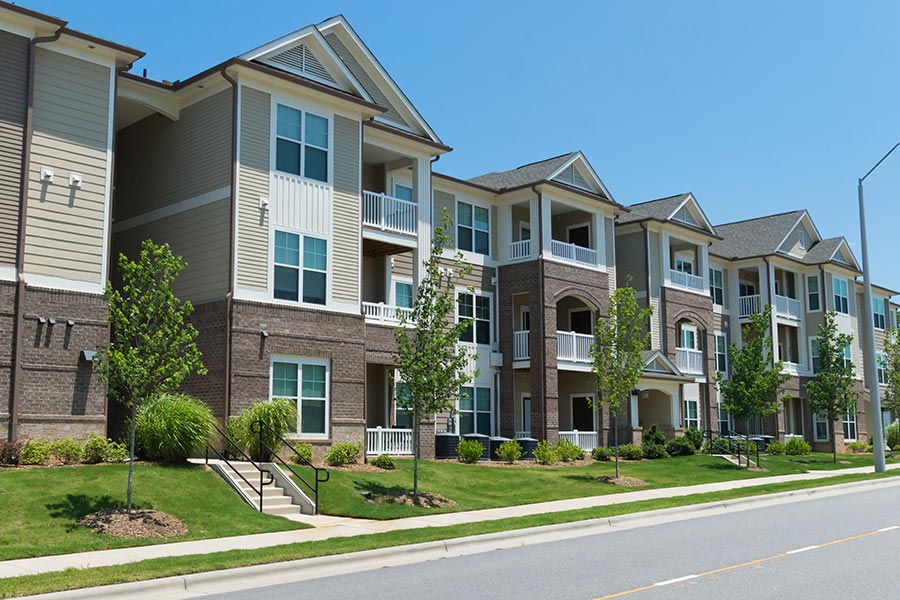Economical Homeownership Options for First-Time Homebuyers
As the real estate market proceeds to evolve, new homebuyers deal with one-of-a-kind difficulties in protecting cost effective homeownership options. These efforts not only promote homeownership but additionally foster community security and financial development.
Government Assistance Programs
Entitlement program programs play a vital function in making homeownership attainable for many people and households. These programs intend to ease the monetary concern related to acquiring a home, particularly for newbie purchasers. By supplying financial assistance, grants, and tax incentives, federal government efforts help connect the void between increasing real estate prices and the acquiring power of potential property owners.
Different programs are offered at the federal, state, and neighborhood levels. The Federal Housing Administration (FHA) gives insurance on loans, enabling loan providers to offer much more beneficial terms, such as lower down payments and decreased rate of interest prices. In addition, state and city governments often have their very own efforts, which might consist of deposit help programs, property buyer education training courses, and desirable home loan terms.
These programs are made to resolve the one-of-a-kind challenges encountered by reduced- to moderate-income households, including limited savings and credit report. By promoting an environment where homeownership is a lot more easily accessible, entitlement program programs not only support private ambitions but additionally add to community security and economic growth. Recognizing and using these resources can dramatically boost the leads of successful homeownership.
Low-Down-Payment Home Mortgages
For many ambitious home owners, low-down-payment home loans present a sensible pathway to homeownership, specifically in today's difficult housing market. These home mortgage options typically need down payments varying from 3% to 5%, making it easier for newbie buyers to go into the marketplace without the concern of conserving for a significant down settlement.
Numerous loan providers provide low-down-payment programs, consisting of traditional fundings backed by Fannie Mae and Freddie Mac, along with government-backed alternatives like FHA fundings. These home loans are developed to fit people with minimal cost savings while still supplying competitive rates of interest. Notably, they allow customers to preserve more money for various other important expenditures, such as relocating prices, home assessments, and potential renovations.
However, potential homeowners ought to bear in mind the compromises connected with low-down-payment home mortgages. A smaller down repayment might lead to higher regular monthly settlements and the requirement of exclusive home mortgage insurance coverage (PMI), which secures lenders in instance of default. Consequently, it is important for novice purchasers to perform comprehensive study and seek advice from home loan specialists, ensuring they select a low-down-payment option that straightens with their long-term economic goals. Affordable Homeownership.
First-Time Buyer Grants
Many new buyers locate that grants can substantially ease the financial worry of purchasing a home, matching low-down-payment home loan choices. These gives, frequently given by state and city governments or charitable organizations, supply monetary assistance that does not require payment, making them an attractive choice for those getting in the housing market.
Eligibility for new buyer gives typically relies on income, creditworthiness, and the acquisition cost of the home. Several Homepage programs are developed to assist low- to moderate-income households, making certain that assistance reaches those that require it most. The application procedure usually entails documents of financial standing, property buyer education and learning programs, and occasionally also a dedication to stay in the home for a certain duration.
The amount of support differs widely, with some gives offering numerous thousand bucks to aid cover closing prices or deposits. Looking into readily available grants in your area is crucial, as programs frequently alter and may have certain needs. By leveraging you can try here these monetary sources, new buyers can make homeownership much more available, ultimately accomplishing their desire for owning a home while alleviating the initial financial strain.
Cutting-edge Community Efforts
Ingenious neighborhood initiatives are playing a crucial duty in increasing budget friendly homeownership alternatives for residents. These efforts typically involve joint efforts between city governments, charitable companies, and exclusive field stakeholders to produce sustainable real estate solutions customized to neighborhood requirements.
One noteworthy approach is the establishment of area land depends on (CLTs), which permit residents to acquire homes while the land remains possessed by the trust fund. This version helps keep cost with time and prevents speculative rate boosts. In addition, CLTs usually provide educational sources and assistance services to equip new buyers.
An additional effective effort is the development of mixed-income real estate jobs, which blend affordable units with market-rate homes. This strategy fosters inclusive neighborhoods and reduces the stigma typically related to low-income real estate. Local governments are progressively sustaining zoning reforms to facilitate the building and construction of accessory house units (ADUs), which can offer additional rental income for home owners while enhancing real estate schedule.

Tips for Budgeting and Saving

Following, develop a committed interest-bearing account specifically for your future home purchase. Aim to save a percent of your income consistently, preferably 20% or more, to develop a substantial down settlement. Make use of automation devices, such as straight deposit or automatic transfers, to make saving easier and more consistent.
Additionally, think about taking on the 50/30/20 policy: designate 50% of your earnings to demands, 30% to wants, and 20% to savings and debt repayment - Affordable Homeownership. This approach promotes balanced economic health and wellness

Conclusion
In recap, budget friendly homeownership choices for new property buyers incorporate various sources such as government support programs, low-down-payment home loans, and grants. These efforts not only facilitate entry right into the real estate market but likewise advertise area security and economic growth. By leveraging these monetary tools, people can navigate the complexities of homeownership, eventually contributing to an extra fair real estate landscape. Proceeded support and awareness of these programs are important for enhancing availability to homeownership possibilities.
As the housing market continues to advance, new homebuyers face distinct challenges in protecting budget-friendly homeownership alternatives. By promoting an atmosphere where homeownership is more available, government assistance programs not only support private ambitions yet additionally add to neighborhood stability and economic growth. By leveraging these financial sources, newbie buyers can make homeownership much more obtainable, inevitably attaining their dream of having a home while reducing the first financial pressure.
In summary, economical homeownership choices for novice homebuyers include numerous sources such as federal government aid programs, low-down-payment mortgages, and grants. By leveraging these monetary tools, individuals can browse the intricacies of homeownership, ultimately adding to a much more equitable housing landscape.
Comments on “The Secret to Long-Term Success with Affordable Homeownership”